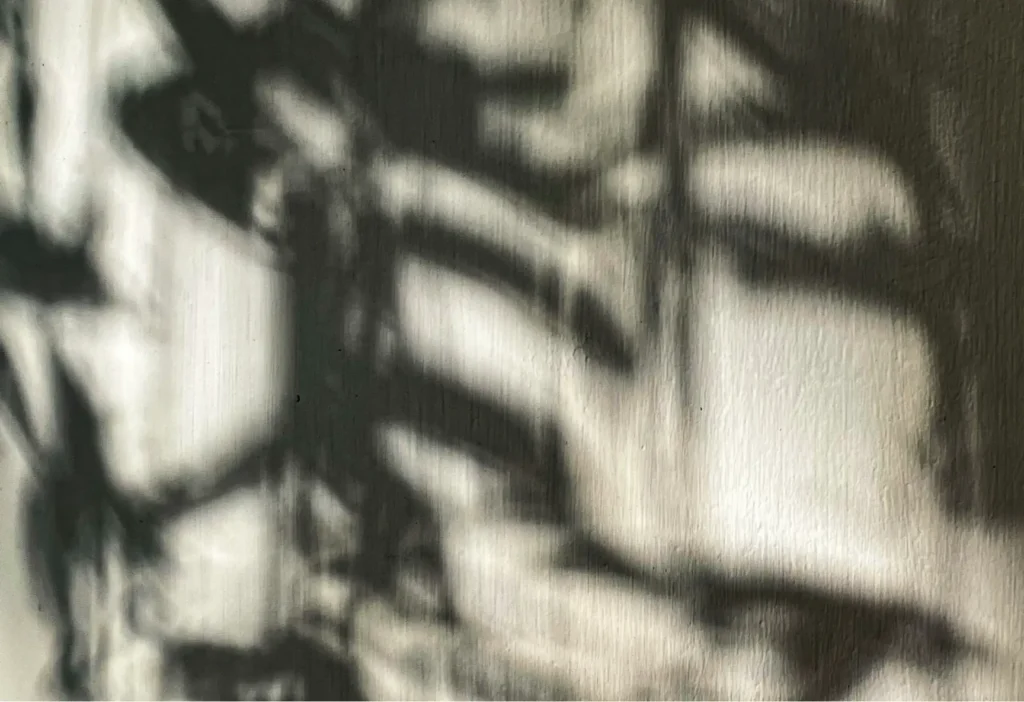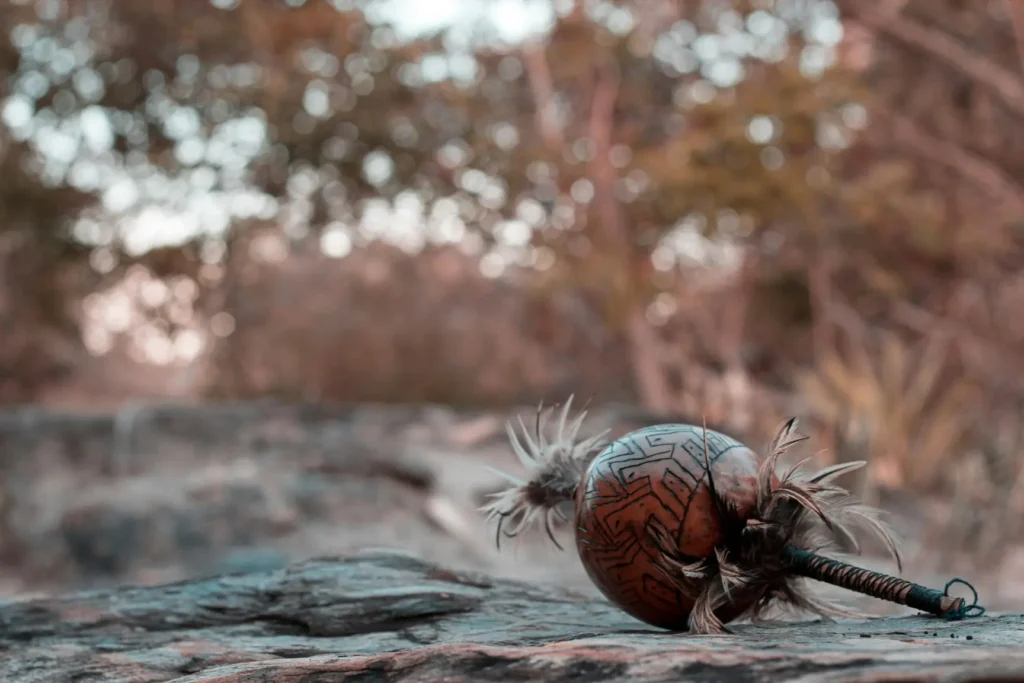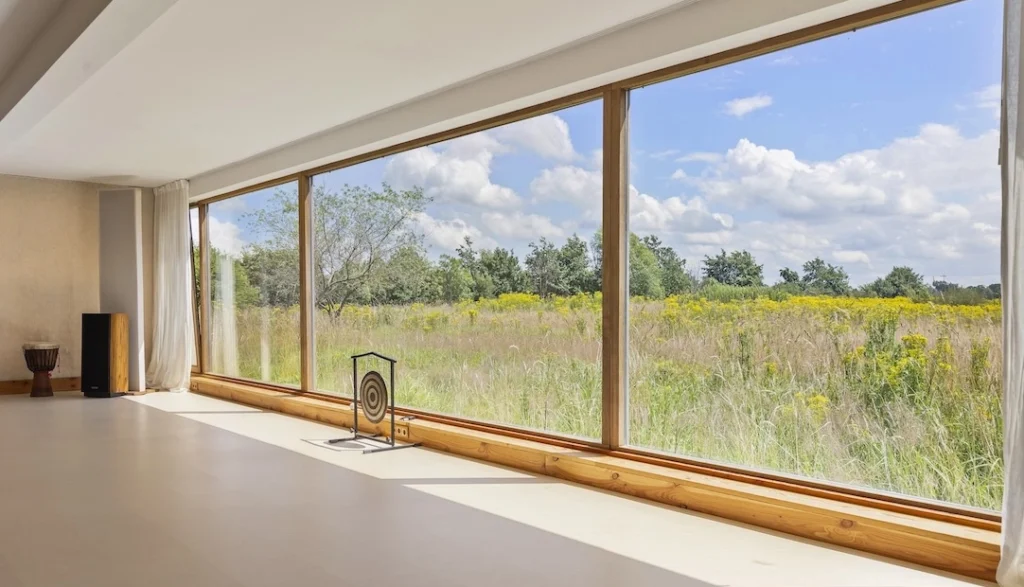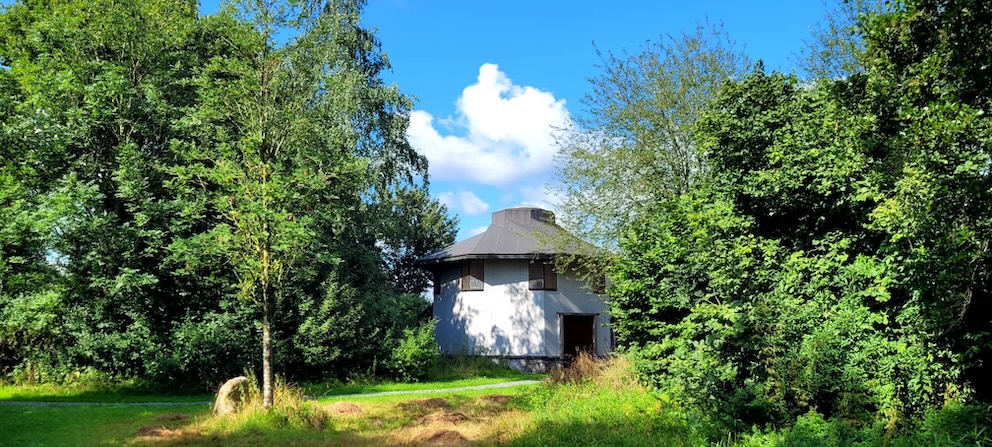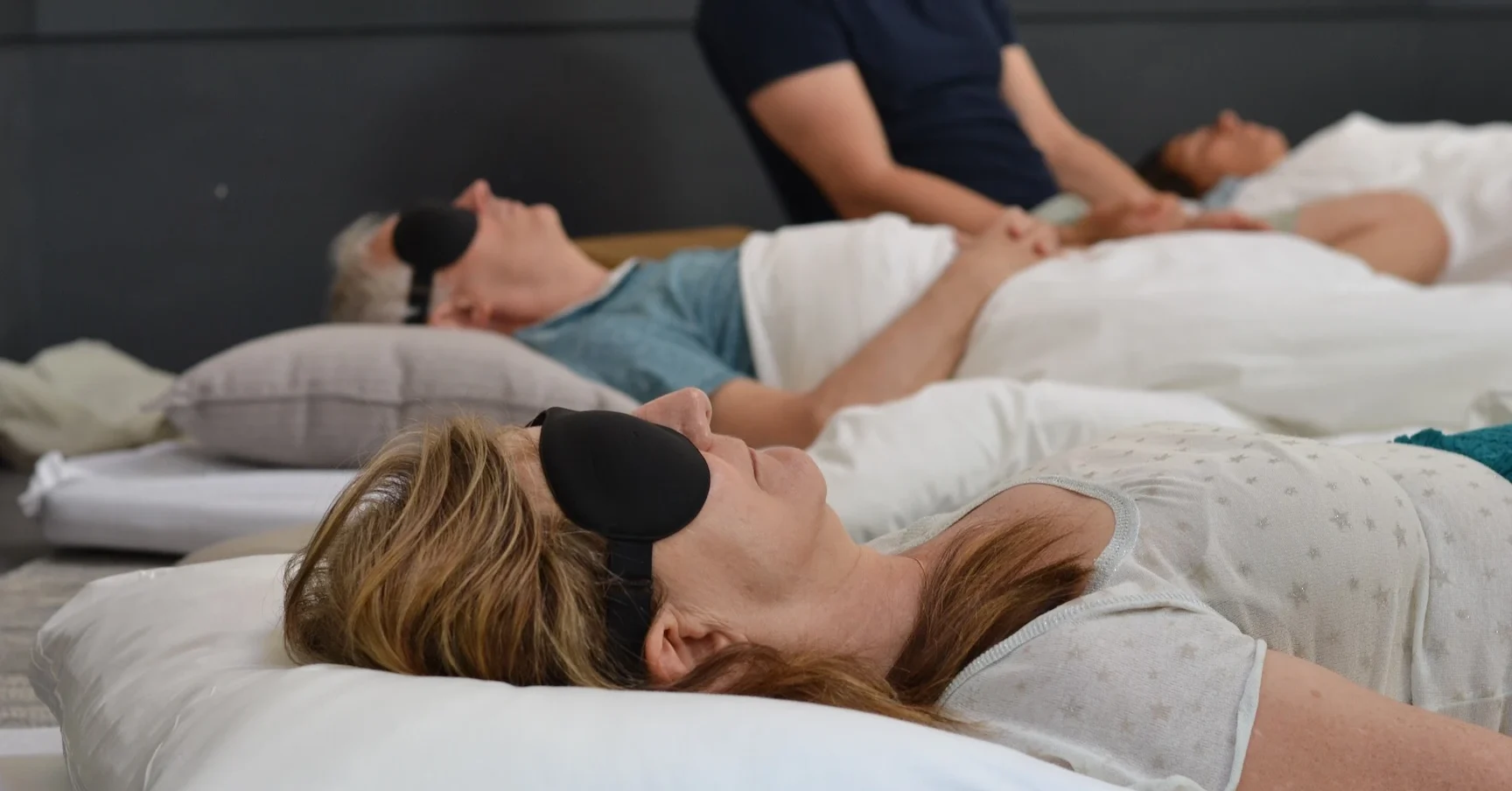Dmitrij Achelrod PhD
Dmitrij Achelrod PhD
Contributing Authors
Dmitrij Achelrod PhD
In recent years, we’ve witnessed a renaissance of interest in psychedelics. With a solid body of academic evidence bolstering psychedelics, a new narrative emerges, one that highlights their profound potential for personal growth, healing, and transformation. At the heart of this movement are psychedelic retreats: in the best case, sanctuaries that invite individuals to embark on a journey of self-discovery and reconnection with life itself. In the worst case, a disturbing and destabilizing experience.
So what exactly makes a psychedelic retreat a quality experience?
How can one discern between a transformative sanctuary and a superficial escapade?
How do you know which retreat will offer genuine, safe, and transformative experiences?
What key characteristics should you look for when choosing a retreat that aligns with your personal intentions and needs?
In this essay, we will delve into the essential elements that define a quality psychedelic retreat. We will explore the importance of setting and environment, the role of skilled facilitators, and the critical aspects of preparation and integration. Ready? Let’s begin!
Understanding the Purpose of Psychedelic Retreats
Psychedelic retreats offer more than just an opportunity to explore altered states of consciousness; they are designed to facilitate profound personal growth and healing. At their core, these retreats serve as catalysts for transformation, providing a safe and supportive environment where participants can delve deep into their psyche.
But why are these experiences so transformative? The answer lies in the unique ability of psychedelics to dissolve the boundaries of the self, allowing individuals to confront and process deeply ingrained patterns, traumas, and beliefs, and to connect to something beyond the small sense of self. This introspective journey often leads to a renewed sense of clarity and purpose, helping participants to fall back in love with life and rediscover their authentic selves.(1,2)
Beyond personal integration and movement towards wholeness, psychedelic retreats also foster a sense of connection—both with oneself and with the broader web of life. In a world that often feels fragmented and disconnected, these retreats provide a space where individuals can tap into a sense of unity and interconnectedness.(3) This connection is not only with the natural world but also with other participants, creating a community of shared experiences and mutual support. By integrating these insights and connections into everyday life, participants often find themselves more aligned with their values and more capable of navigating the complexities of modern existence with grace and resilience.(4)
Which Essential Features of a Quality Psychedelic Retreat You Should Look Out For
As interest in psychedelic retreats continues to grow, so does the diversity of offerings available to those seeking these transformative experiences. But with an abundance of choices, how can one distinguish between a truly quality retreat and those that may fall short? Understanding the essential features of a quality psychedelic retreat is crucial for ensuring a safe, enriching, and transformative journey.
A quality psychedelic retreat is meticulously crafted with attention to every detail, from a thorough medical / psychological / psychiatric screening procedure, preparation before the retreat, the choice of location to the expertise of the facilitators. It prioritizes preparation, safety & personal support on-site, as well as on-site and post-retreat integration, creating an environment where participants can explore their inner landscapes with confidence and trust and with the help of appropriate and attuned guidance.
Setting and Environment: Creating a Healing Space
The setting and environment of a psychedelic retreat are foundational elements that significantly influence the depth and quality of the experience. This is because research has found that the effect of psychedelics is highly context-dependent. (5–7) Imagine stepping into a tranquil sanctuary nestled amidst nature, without the pollution, noise, and distractions of city life. Such environments are intentionally chosen for their ability to foster a sense of peace and connection, allowing participants to immerse themselves fully in the process of self-exploration. A quality retreat meticulously curates its surroundings to enhance the therapeutic potential of psychedelics, recognizing that the natural world and physical environment can play a crucial role in facilitating healing and insight.
Beyond the aesthetic beauty, the environment of a retreat is designed to be safe and nurturing, providing a container where participants feel secure enough to let go of their defenses and explore the depths of their consciousness. This includes comfortable accommodations, thoughtfully arranged communal spaces, and access to nature, all of which contribute to a sense of harmony and balance. The setting serves as more than just a backdrop; it is an integral part of the journey, influencing the emotional and psychological states of participants. By creating an environment that is both inviting and supportive, quality psychedelic retreats set the stage for profound transformation, encouraging individuals to open up to new perspectives and insights.
Why One-Night Retreats Might be a Bad Idea
One crucial aspect of the setting and environment is the retreat’s duration. One-night retreats, that attract many people given their seductive price, often lack the time necessary for participants to adapt to their surroundings and prepare their nervous systems for the intense inner work of a psychedelic experience. Not to speak of a complete lack of integration – in one-night retreats, participants are usually still “raw and open” the next morning after the ceremony, but already need to leave the retreat because the next group is already waiting. Vulnerable participants may be de-stabilized in such a setup, and even stable participants miss out on most of the benefits of a potentially life-changing experience – our nervous systems are highly intelligent and if we don’t feel completely safe, can develop trust and are adequately prepared, our journey won’t go as deep as otherwise possible, and if there is insufficient time for integration the effects of the psychedelic experience might not last very long.
By the way of contrast, a multi-day retreat (3-5 days) provides the progressive unfolding needed for a deep, meaningful and safe journey. This extended timeframe allows participants to settle into the environment, build trust with facilitators and fellow participants, and gradually deepen their introspection. By giving the nervous system time to adjust, multi-day retreats create the optimal conditions for transformative integration and developmental experiences, enabling individuals to open up fully to the insights and growth that psychedelics can facilitate. This slower, intentional pacing fosters safety, integration, and a more profound connection to the self and the retreat experience as a whole. It is often in the hours and days after the psychedelic experience where eureka moments happen. Most woundings and blockages happen in relation, and thus a couple of days on-site allow for new emotional and relational reference experiences (social and relational learning and re-wiring) that is precisely what most participants would benefit from, if given enough time. It’s not the substance per se then that will have the desired effects, but what follows in terms of introspection, dialogue, nature and somatic exercises and especially relational (bonding) experiences after the experience on-site.
Qualified Facilitators: Expertise and Experience
The presence of qualified (!) facilitators is a hallmark of a quality psychedelic retreat, ensuring that participants are guided safely and effectively through their transformative journeys. Ideally, these facilitators have a deep understanding of the psychedelic experience and its potential for integration, development, and growth, but are also aware of the potential dangers of psychedelic experiences. Their expertise is often rooted in extensive training, often encompassing (transpersonal) psychology, clinical psychotherapy, somatic healing practices (such as Hakomi, Somatic Experiencing, Breathwork), mindfulness meditation, hospice work, or traditional healing practices, which equips them to navigate the complexities of altered states of consciousness. Having a medical doctor on-site surely helps as well to calm nerves and attenuate the risk of edge cases.
Experienced facilitators play a crucial role in creating a secure and supportive environment. They are adept at preparing participants for their journeys, offering guidance on setting intentions and managing expectations. During the retreat, they provide compassionate support, assisting individuals in navigating challenging emotions or insights that may arise. Post-experience, facilitators are instrumental in helping participants integrate their experiences, ensuring that the insights gained are translated into meaningful changes in daily life. Their presence not only enhances the safety and efficacy of the retreat but also enriches the overall experience, allowing participants to explore the depths of their consciousness with confidence and trust.
Some people even go so far as to say that the journeyer can only travel as deep as the facilitator has gone, i.e. has done his / her own inner work and visited certain consciousness states and depths of experience. For instance, if a person under the influence of psychedelics encounters deep sorrow during their journey (individual, collective or ancestral), the facilitator must have the inner capacity to hold these intense emotions. Suppose the facilitator gets completely overwhelmed by the moment’s intensity because she/he hasn’t processed their own sorrow or never entered the field of collective pain or ancestral trauma. In that case, she/he might be unable to offer the journeyer a grounded, compassionate, and motive-free environment. Instead, the facilitator will try to avoid being confronted with this sorrow, and this will inevitably impact the process of the journeyer.
Safety Protocols: Ensuring Participants’ Well-being
Safety is paramount in any psychedelic retreat, as it lays the foundation for a transformative and healing experience. A quality retreat is characterized by comprehensive safety protocols that prioritize the well-being of participants at every stage of the journey. From the initial screening process to post-retreat follow-ups, these protocols are designed to minimize risks and ensure that individuals are physically, emotionally, and psychologically prepared for the experience. This begins with thorough health assessments and medical evaluations, where facilitators gather essential information to tailor the retreat to each participant’s specific needs and circumstances. Ideally, this initial screening is performed by a medical doctor with a background in psychotherapy or psychiatry through a written questionnaire and a personal interview. Very few retreats can offer such an in-depth assessment.
During the retreat, safety measures continue to be a focal point. Experienced facilitators maintain a vigilant presence, monitoring the well-being of participants and offering support as needed. In addition, top-notch retreats always have a medical doctor present during the psychedelic experience. Even if it’s exceedingly rare that medically relevant complications arise, you can’t exclude them, and we at Evolute did have already some instances where we were really glad to be able to rely on a competent M.D. on-site. This can pertain to medication-related questions, to pre-ceremony medical questions (blood pressure), post-ceremony issues (headaches) and more serious things (even things unrelated to the psychedelic ceremony) that can simply happen if people get together for four days offsite.
Emergency protocols are in place to address any unforeseen situations, ensuring that participants have immediate access to medical care if necessary. Furthermore, the retreat environment is structured to promote comfort and security, with clear guidelines on behavior and interaction.
Psychedelic Substances and Legality
An often overlooked aspect of safety is the transparency and responsibility in the sourcing and administration of psychedelic substances. Quality retreats ensure that participants are fully informed about the exact substance they will consume, its origin, and the precise dosage. The origin of the substance is especially important when the basis is endangered plants or animals, such as the vines in Ayahuasca, the cactuses for Peyote, the Sonora Desert Frogs for 5-MEO-DMT, or the Iboga shrub. Intense psychedelic tourism in South and Meso-America has already now caused great strain on the naturally occurring sources of psychedelics and on the local communities providing these services.
Knowing the source, dosage, and risk factors (such as interaction with food and medication) of the substance(s) fosters confidence in the process and minimizes the risks associated with unknown or poorly prepared materials. Ideally, participants are free to choose their own dosage (after consulting with the facilitator experts) based on their intention, medical history, and sensitivity. Such transparency reflects the retreat’s commitment to ethical practices and the well-being of all involved, ensuring that participants can engage in their journey with a clear mind and a sense of security.
Equally important is adherence to the legality of the substances used during the retreat. High-quality retreats operate within the bounds of local legislation, ensuring that the use of psychedelics is both safe and lawful. By aligning their practices with local regulations, reputable retreats demonstrate their dedication to integrity and provide participants with peace of mind as they embark on their transformative journeys.
The Role of Preparation and Integration
Embarking on a psychedelic journey is not simply about experiencing altered states of consciousness; it is a process that begins well before the actual retreat and continues long after. Preparation and integration are critical components that bookend the psychedelic experience, ensuring that participants derive lasting benefits from their journey. A quality psychedelic retreat recognizes the importance of these phases, offering comprehensive support that helps individuals navigate their inner landscapes with intention and clarity.
Preparation involves setting the stage for the experience, both mentally and physically. It includes understanding personal intentions, addressing any apprehensions, and cultivating a mindset conducive to exploration and healing. Zen Buddhists would say that we need to develop a “beginner’s mind”, a state of mental openness and curiosity. On the other hand, integration focuses on making sense of the insights gained during the retreat, translating them into meaningful changes in everyday life. Good integration programs last several weeks or months after the psychedelic experiences and use the power of community to instill inspiration and lasting change.
By emphasizing preparation and integration, quality retreats empower participants to maximize their experiences, fostering growth and transformation that extend beyond the retreat setting.
Preparing for the Psychedelic Journey
Preparation is a crucial step in the psychedelic journey, setting the foundation for a meaningful and transformative experience. This phase is more than just logistical planning; it involves deep introspection and intention-setting, helping participants align their mental, emotional, and physical states with the journey they are about to undertake. Quality psychedelic retreats often guide participants through this preparation process, offering resources and support to ensure they are ready to engage with the profound potential of psychedelics. This can include reflective exercises, meditation practices, input on personal growth and development, knowledge about the effects of psychedelics on mind and brain, a clear ontological and epistemological framework to begin understanding the psychedelic experience, and discussions about personal goals and expectations as well as building trust between the participants and between participants and facilitators.
Moreover, preparation involves creating a mindset of openness and curiosity, essential for navigating the unpredictable nature of psychedelic experiences. Participants are encouraged to approach their journey with a sense of surrender, letting go of preconceived notions and embracing the possibility of encountering both light and shadow within themselves. Practical considerations, such as dietary adjustments or digital detoxes, may also be recommended to enhance mental clarity and focus. By thoughtfully preparing for the psychedelic journey, individuals can enter the retreat with a sense of readiness, trust, and purpose, enhancing the depth and efficacy of their exploration.
Integration Practices: Sustaining the Benefits
Integration is the process through which participants assimilate the insights and experiences gained during a psychedelic retreat into their everyday lives, both personally and in the case of retreats like EvoSHIFT also professionally or from a leadership point of view (leading self and others)((link to evolute leadership model!!)). It is a vital component of the psychedelic journey, as the true value of the experience often unfolds in the weeks and months following the retreat. Quality retreats emphasize the importance of integration, providing structured support and resources to help participants make sense of their experiences and implement meaningful changes. This can include one-on-one counseling, group sharing sessions, and ongoing guidance from facilitators, all aimed at helping individuals translate their newfound awareness into actionable steps.
Effective integration practices encourage participants to reflect on their experiences, identifying key insights and lessons that can inform their personal growth. Journaling, meditation, movement practices, nature connection, and creative expression are common tools that allow individuals to process their journey and maintain a connection to the transformative aspects of their experience. Additionally, establishing a supportive community—whether through alumni networks such as the Evolute Institute tribe / community or local groups—can offer sustained encouragement and accountability. By engaging in thoughtful integration practices, participants can ensure that the benefits of their psychedelic journey are not only preserved but continue to enrich their lives long after the retreat has ended.
Choosing the Right Retreat for Personal Growth
Selecting the right psychedelic retreat is a deeply personal decision that can significantly impact the transformative potential of the experience. We have written extensively about picking a retreat that is aligned with your values and intentions. A quality retreat not only matches your intentions but also resonates with your values and comfort level. It’s essential to research thoroughly, understanding what each retreat offers in terms of safety, facilitator expertise, and integration support.
Aligning Retreat Goals with Personal Intentions
When choosing a psychedelic retreat, aligning the retreat’s goals with your personal intentions is a crucial step in ensuring a meaningful and transformative experience. Personal intentions serve as a compass, guiding the journey and providing clarity on your intention. Whether seeking healing from past traumas, exploring consciousness, or fostering spiritual growth, having clear intentions helps in selecting a retreat that supports these specific aspirations. Reflecting on your personal motivations and desired outcomes can provide valuable insight into the type of retreat that will best facilitate your growth.
Once you’ve identified your intentions, it’s important to research retreats that align with these goals. Consider the retreat’s focus and philosophy—does it emphasize therapeutic healing, spiritual exploration, or personal development? Is it animistic in nature (ascribing agency to the substances) or rooted in a Western, science-based, psychodynamically-informed framework? Are the facilitators able to apply approaches such as ACT (acceptance and commitment therapy), IFS (internal family systems / parts work), trauma-based and embodied approaches like Somatic Experiencing (Peter Levine), and adult development theory (e.g. Keagan, Lovinger, Wilber, Laloux, Permantier)? Understanding the retreat’s approach and the types of experiences it offers can help you determine if it matches your intentions. Additionally, examining the retreat’s structure, such as the initial screening, preparation, and integration practices and types of psychedelics used, can ensure that the retreat is well-suited to support your journey. By aligning retreat strengths with personal intentions, you create a harmonious foundation for a profound and enriching experience.
Researching and Selecting a Reputable Retreat
We recommend gathering information from multiple sources, including online reviews, testimonials, and recommendations from trusted individuals who have participated in similar retreats. Look for retreats that have a well-established presence, transparent practices, and a track record of positive outcomes.
When assessing a retreat’s credibility, consider the qualifications and experience of the facilitators, as their expertise is crucial to guiding participants safely through the psychedelic journey. Investigate the retreat’s safety protocols, including health screenings, emergency procedures, and integration support, to ensure that participant well-being is a top priority. Additionally, examine the retreat’s ethical practices, such as respect for indigenous traditions and environmental sustainability.
If you need more guidance, check out our post comparing different psychedelic retreat providers.
Is Evolute Institute the Right Choice for You?
We genuinely believe that we at Evolute Institute offer exceptional retreats (e.g. EvoSHIFT) judged by the quality of our program, the depth and intensity of the curriculum, but especially by the safety mechanisms we put in place with our highly-skilled and compassionate staff.
We put together an overview for you:
- Safety and Transparency
- ✅ Thorough Screening Process: Comprehensive written and verbal health assessments by a medical doctor to ensure participants’ suitability.
- ✅ Qualified Facilitators: Team of psychologists, medical doctors, death doulas, body workers, and meditation instructors with expertise in psychedelics.
- ✅ Transparency in Psychedelics Sourcing and Dosage: Clear communication about the substance and dosage used during the retreat.
- ✅ Emergency Protocols: Preparedness for unforeseen situations to ensure participant well-being, always with a medical doctor present during the psychedelic session
- Support Before, During, and After the Retreat
- ✅ Personalized Preparation: 3-week preparation phase with group and one-on-one coaching sessions.
- ✅ Integration Support: 2-month integration program with group and individual coaching sessions to sustain benefits.
- ✅ Dedicated Personal Coach: Ongoing support tailored to each participant’s unique intentions and needs.
- ✅ 4-Day Retreat: Multi-day retreat giving you enough time to open to and digest the psychedelic experience
- Setting and Environment
- ✅ Private Retreat Center: Tranquil, beautiful location in the Netherlands, designed to promote healing and introspection.
- ✅ Private Rooms: Ensuring comfort and privacy for participants.
- ✅ Nature Integration: Opportunities for nature walks and immersion in a peaceful setting.
- ✅ Legality: Participants bring their psychedelic truffles, which can be legally purchased in the Netherlands.
- Holistic and Science-Based Approach
- ✅ 3-Month Curated Journey: Structured timeline for preparation, experience, and integration to maximize personal growth.
- ✅ Cutting-Edge Curriculum: Based on the latest scientific research and ancient wisdom traditions.
- ✅ Balanced Programming: Activities designed to address mind, body, emotions, and soul.
- ✅ Somatic Practices: Daily meditations, embodiment workshops, and breathwork sessions.
- Community and Connection
- ✅ Small Group Size: Intimate setting with a maximum of 12 participants to foster connection and safety.
- ✅ Community Integration: Access to an active network of Evolute change-makers for continued growth.
- ✅ Shared Rituals: Activities such as fire ceremonies and creative arts workshops to build communal bonds.
References & Image Sources
- Deane G. Dissolving the self: Active inference, psychedelics, and ego-dissolution. Philos Mind Sci [Internet]. 2020 Mar 24 [cited 2024 Jul 19];1(I):1–27. Available from: https://philosophymindscience.org/index.php/phimisci/article/view/8955
- Letheby C, Gerrans P. Self unbound: ego dissolution in psychedelic experience. Neurosci Conscious [Internet]. 2017 Jan 1 [cited 2024 Nov 1];2017(1):nix016. Available from: https://doi.org/10.1093/nc/nix016
- Plesa P, Petranker R. Psychedelics and neonihilism: connectedness in a meaningless world. Front Psychol [Internet]. 2023 [cited 2023 Aug 27];14. Available from: https://www.frontiersin.org/articles/10.3389/fpsyg.2023.1125780
- Carhart-Harris RL, Erritzoe D, Haijen E, Kaelen M, Watts R. Psychedelics and connectedness. Psychopharmacology (Berl). 2018 Feb;235(2):547–50.
- Carhart-Harris RL, Roseman L, Haijen E, Erritzoe D, Watts R, Branchi I, et al. Psychedelics and the essential importance of context. J Psychopharmacol (Oxf) [Internet]. 2018 Jul 1 [cited 2022 Jul 21];32(7):725–31. Available from: https://doi.org/10.1177/0269881118754710
- St Arnaud KO, Sharpe D. Contextual Parameters Associated with Positive and Negative Mental Health in Recreational Psychedelic Users. J Psychoactive Drugs. 2022 Feb 13;1–10.
- Hartogsohn I. The Meaning-Enhancing Properties of Psychedelics and Their Mediator Role in Psychedelic Therapy, Spirituality, and Creativity. Front Neurosci. 2018;12:129.
- Photo by David Rotimi on Unsplash
- Photo by Henry Be on Unsplash
- Photo by Tom Shakir on Unsplash
- Photo by Stéfano Girardelli on Unsplash

Patrick Liebl,
Lead Facilitator & Integration Expert
Curious to learn more?
We invite you to schedule a call with us. Together, we can explore any questions you may have. We can explore whether a program with a legal psychedelic experience is right for you at this time.
“We are here to support your exploration, at your pace, with no expectations.” – Patrick Liebl


